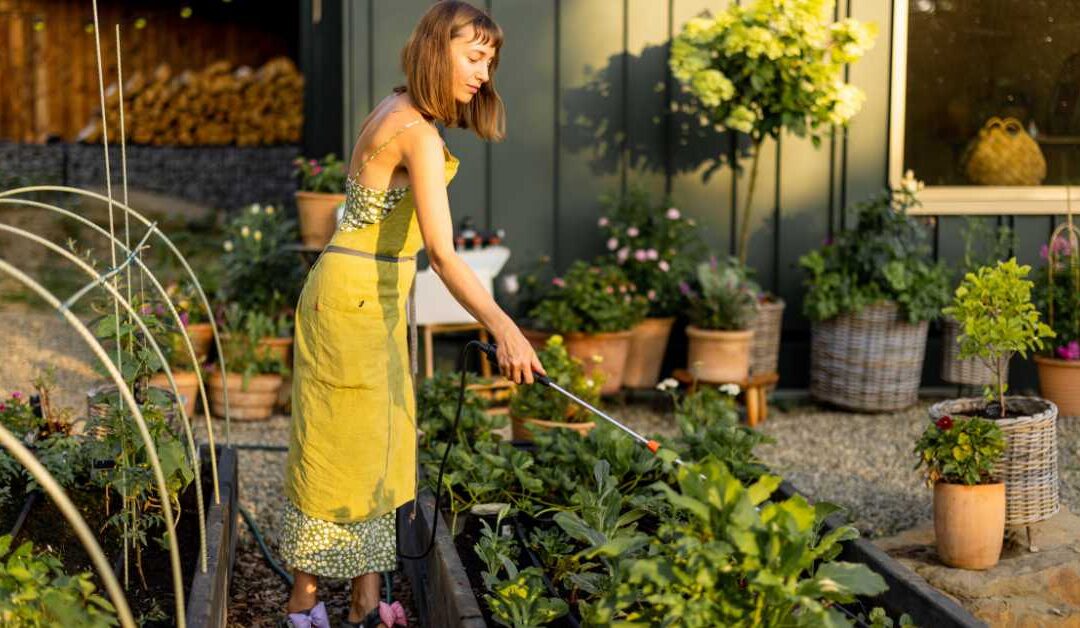Lets look How to Practice Organic Gardening. Organic gardening is more than just a trend—it’s a lifestyle choice that prioritizes sustainability and the health of our environment. As concerns about chemical usage in conventional gardening grow, more individuals are turning to organic practices to cultivate vibrant, chemical-free gardens. Whether you’re a novice or an experienced gardener in Thousand Oaks CA, learning and adopting organic methods can transform your gardening experience.
What Is Organic Gardening?
Organic gardening focuses on working with nature rather than against it. This approach avoids synthetic chemicals, pesticides, and fertilizers, relying instead on natural methods to enrich the soil, nourish plants, and control pests. The ultimate goal is to create a balanced ecosystem where plants, beneficial insects, and microorganisms coexist harmoniously.
Benefits of Organic Gardening
Healthier Produce
Organic gardens produce fruits, vegetables, and herbs that are free of harmful pesticides and synthetic chemicals, making them safer and healthier for consumption.
Environmental Sustainability
By avoiding chemical inputs, organic gardening reduces soil and water contamination, helping preserve the environment for future generations.
Enhanced Soil Health
Organic methods prioritize soil fertility, often using compost, cover crops, and natural amendments to create rich, nutrient-dense soil.
Encouragement of Biodiversity
Organic gardens attract a wide range of beneficial insects, birds, and other wildlife, creating a thriving ecosystem.
Essential Organic Gardening Practices
Composting
Composting is the backbone of organic gardening. It recycles kitchen scraps and yard waste into nutrient-rich compost that enriches soil and promotes plant growth. Whether you’re a gardener in Moorpark CA or elsewhere, starting a compost pile is a simple yet impactful step.
Natural Pest Control
Avoid chemical pesticides by using natural alternatives like neem oil, insecticidal soaps, or homemade sprays. Encourage beneficial insects like ladybugs and praying mantises, which naturally control pest populations.
Crop Rotation
Rotating crops each season prevents the depletion of specific soil nutrients and reduces the risk of pest and disease build-up.
Mulching
Mulch helps retain soil moisture, suppress weeds, and regulate soil temperature. Organic options include wood chips, straw, and leaves.
Companion Planting
Some plants, when grown together, can deter pests or enhance growth. For example, marigolds planted near vegetables can repel nematodes and aphids.
AVS Landscaping: Your Partner in Organic Gardening
For those seeking expert guidance in transitioning to or maintaining an organic garden, AVS Landscaping is here to help. As a trusted name in landscaping, they offer tailored advice and services to help you achieve a thriving organic garden.
Why Choose Organic Gardening?
Choosing organic gardening practices is not only beneficial for your plants but also for your family, community, and the planet. Whether you’re a gardener in Oak Park CA looking to adopt sustainable methods or simply exploring ways to reduce chemical use, organic gardening is a fulfilling and impactful choice.
We hope you enjoyed this article on “How to Practice Organic Gardening.” AVS Landscaping is proud to support gardeners across the region with innovative, eco-friendly solutions. Embrace organic gardening today, and take the first step toward a healthier and greener future! 10 Tips for Hiring a Contractor.


